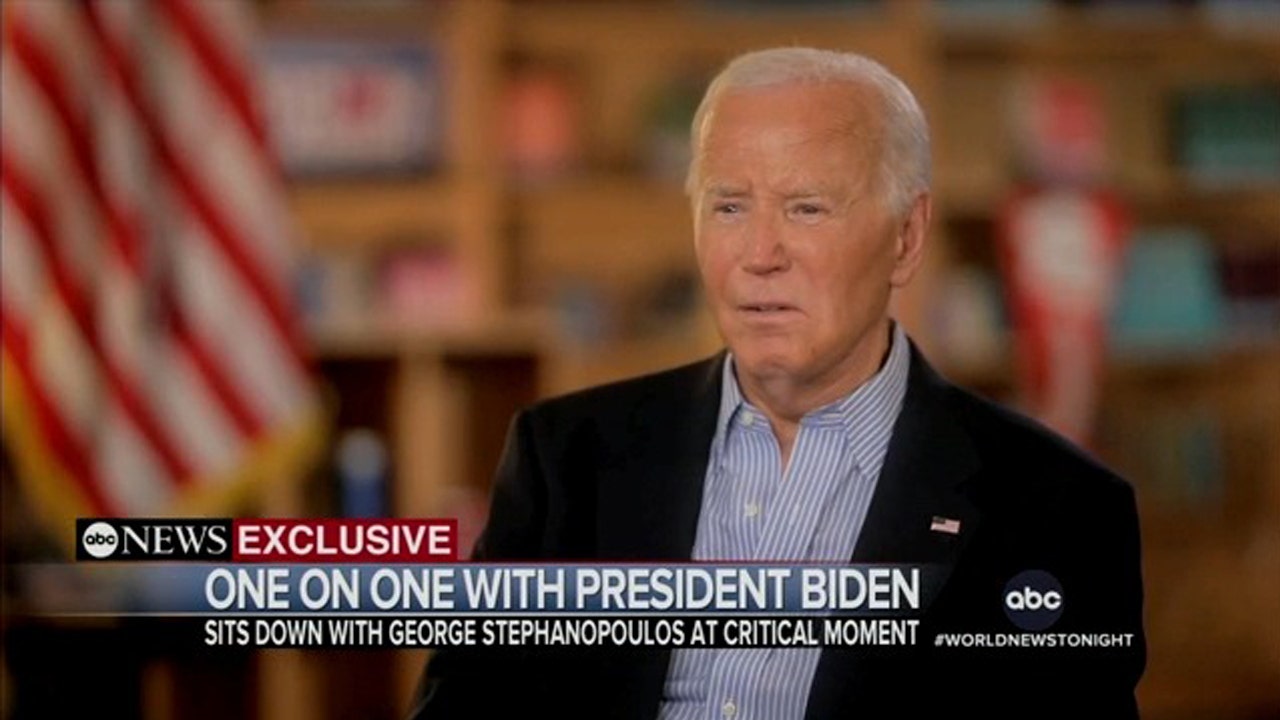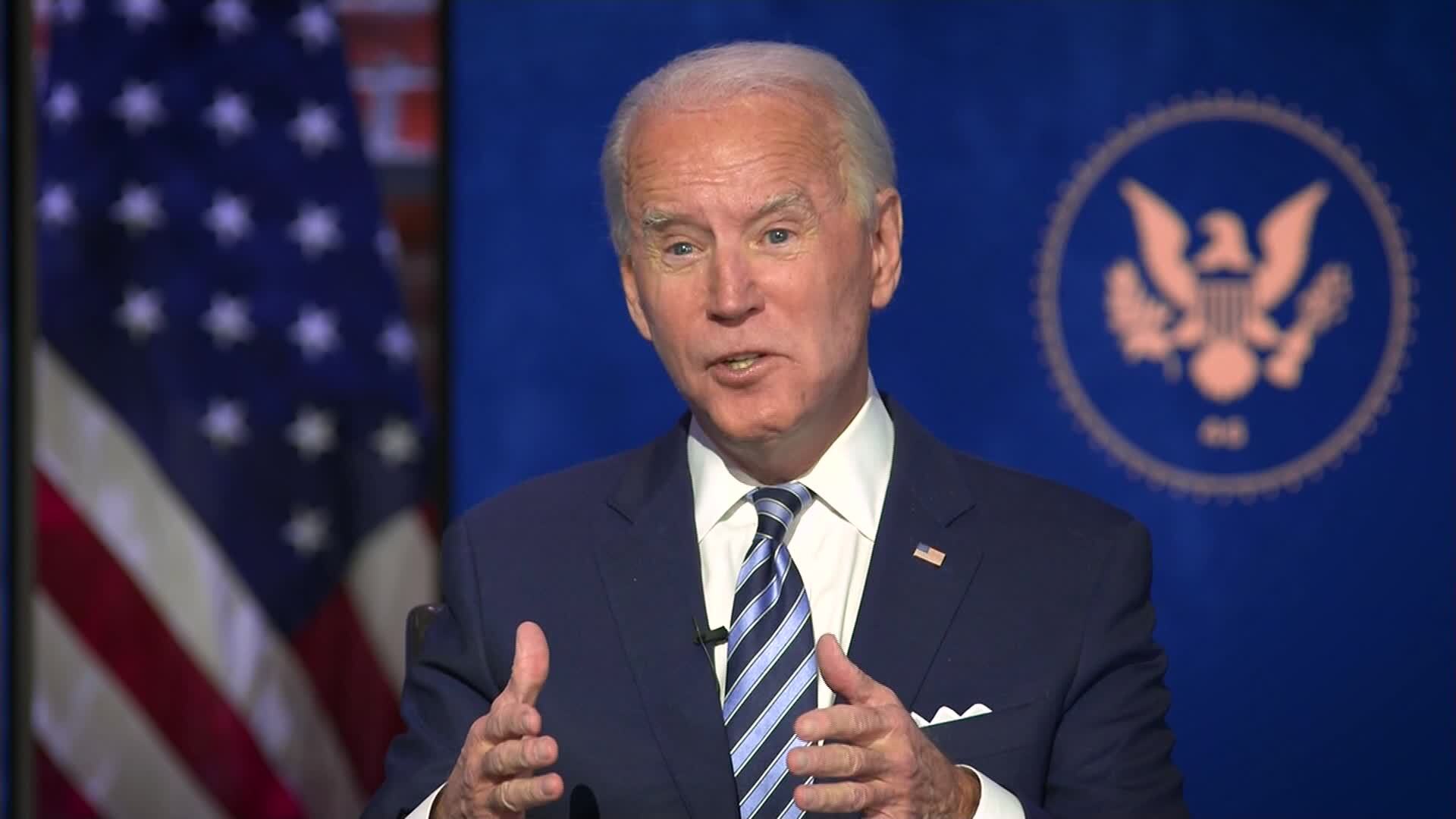Biden’s Domestic Policy: Biden Interview

Biden interview – Biden’s domestic policy agenda is ambitious, focusing on addressing key issues such as healthcare, climate change, economic inequality, and gun violence. His policies aim to improve the lives of all Americans, particularly those who have been historically marginalized or left behind.
In an interview, Biden underscored the significance of the NATO summit in Washington D.C. as a testament to the enduring strength of the alliance. The summit, which brought together leaders from across the globe, provided a platform to reaffirm the shared commitment to collective security and address pressing global challenges.
Biden’s emphasis on the summit underscores his administration’s unwavering commitment to maintaining a strong and united NATO.
The American Rescue Plan
The American Rescue Plan, passed in March 2021, was a $1.9 trillion economic stimulus package designed to provide relief from the COVID-19 pandemic. The plan included direct payments to individuals and families, extended unemployment benefits, and funding for vaccine distribution and testing.
The American Rescue Plan had a significant impact on the American people. It helped reduce poverty, boost consumer spending, and accelerate the economic recovery. However, it also contributed to rising inflation, which has become a major concern for the Biden administration.
The Build Back Better Act
The Build Back Better Act, proposed in November 2021, is a $1.75 trillion social spending and climate change bill. The bill includes funding for universal pre-kindergarten, expanded healthcare coverage, clean energy investments, and tax credits for families and businesses.
The Build Back Better Act has not yet been passed by Congress. It has faced opposition from Republicans and some moderate Democrats, who argue that it is too expensive and would increase inflation. However, the Biden administration remains committed to passing the bill, which it believes is essential to addressing the long-term challenges facing the country.
Gun Control
Gun violence is a major problem in the United States. In 2020, there were over 45,000 gun-related deaths in the country. Biden has made gun control a priority of his presidency, and he has taken a number of steps to address the issue.
Biden’s recent interview provided a glimpse into his perspective on global affairs. He emphasized the importance of strengthening alliances, a topic he further elaborated on in his NATO speech. The speech underscored his commitment to collective security and the defense of shared values.
Returning to the interview, Biden reiterated his belief that diplomacy and dialogue remain essential tools in navigating international challenges.
Biden has called for a ban on assault weapons and high-capacity magazines. He has also supported measures to expand background checks and close the “gun show loophole.” However, these measures have faced strong opposition from Republicans and the gun lobby, and it is unclear whether they will be passed into law.
The Challenges of Biden’s Domestic Agenda
Biden’s domestic agenda is ambitious, but it faces a number of challenges. The COVID-19 pandemic has had a significant impact on the economy and the country’s social fabric. The pandemic has also made it more difficult to pass legislation through Congress, as lawmakers have been forced to focus on the immediate crisis.
In addition, Biden faces opposition from Republicans, who control the Senate. Republicans have been largely unwilling to cooperate with Biden on his legislative agenda, and they have blocked or watered down many of his proposals.
Despite these challenges, Biden has made some progress on his domestic agenda. He has signed a number of executive orders on issues such as climate change and gun control. He has also worked with Congress to pass legislation on infrastructure and healthcare.
The success of Biden’s domestic agenda will depend on his ability to overcome these challenges. He will need to find a way to work with Republicans and pass legislation through Congress. He will also need to continue to address the COVID-19 pandemic and its impact on the economy and the country.
Biden’s Foreign Policy

President Biden has made a number of significant changes to US foreign policy since taking office in January 2021. These changes reflect his commitment to multilateralism, climate change, and human rights. However, he has also faced a number of challenges, including the ongoing COVID-19 pandemic, the war in Ukraine, and the rise of China.
Key Goals and Priorities
- Rejoin the Paris Agreement on climate change.
- Restore US leadership on the world stage.
- Promote democracy and human rights.
- Address the threat posed by climate change.
- Strengthen alliances and partnerships.
Key Challenges
- The ongoing COVID-19 pandemic.
- The war in Ukraine.
- The rise of China.
- The threat of climate change.
- The spread of disinformation and misinformation.
Successes and Failures
Biden has made some progress on his foreign policy goals, such as rejoining the Paris Agreement and restoring US leadership on the world stage. However, he has also faced some setbacks, such as the ongoing war in Ukraine and the rise of China. It is too early to say definitively whether Biden’s foreign policy approach has been a success or a failure.
Biden’s Presidency

Joe Biden’s presidency has been marked by both significant accomplishments and major challenges. He has faced a global pandemic, a struggling economy, and deep political divisions. Despite these challenges, he has made progress on key issues such as climate change, healthcare, and infrastructure.
Timeline of Biden’s Presidency, Biden interview
- January 20, 2021: Biden is inaugurated as the 46th president of the United States.
- March 11, 2021: Biden signs the American Rescue Plan Act, a $1.9 trillion economic stimulus package.
- April 22, 2021: Biden announces the withdrawal of all U.S. troops from Afghanistan by September 11, 2021.
- November 15, 2021: Biden signs the Infrastructure Investment and Jobs Act, a $1.2 trillion infrastructure package.
- August 30, 2021: The U.S. completes its withdrawal from Afghanistan, ending a 20-year war.
- March 11, 2022: Biden signs the American Rescue Plan Act, a $1.9 trillion economic stimulus package.
- June 24, 2022: Biden signs the Bipartisan Safer Communities Act, a gun control package.
- August 9, 2022: Biden signs the Inflation Reduction Act, a $430 billion climate change and healthcare package.
Key Challenges Facing Biden
Biden has faced a number of key challenges during his presidency, including:
- The COVID-19 pandemic: The pandemic has had a devastating impact on the U.S. economy and healthcare system. Biden has taken a number of steps to address the pandemic, including implementing a national vaccination program and providing economic relief to businesses and individuals.
- The economic recession: The pandemic has caused a sharp economic recession in the United States. Biden has taken a number of steps to address the recession, including passing the American Rescue Plan Act and providing economic relief to businesses and individuals.
- Political divisions: The United States is deeply divided politically, and Biden has faced significant opposition from Republicans in Congress. This has made it difficult for him to pass his agenda and address the challenges facing the country.
Biden’s Leadership Style
Biden is known for his moderate and pragmatic approach to politics. He is a consensus-builder and has a long history of working with both Democrats and Republicans. Biden’s leadership style has been praised by some for its ability to bring people together and find common ground. However, others have criticized him for being too cautious and for not being bold enough in his approach to the challenges facing the country.